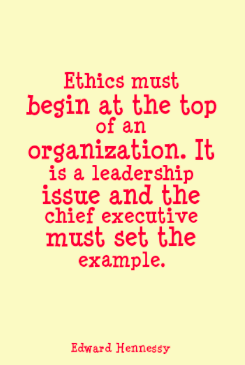I’m playing catch-up. The week 3 #EdublogsClub challenge was to write a post about leadership. I’ve done much reflection and writing about leadership over the past several years of blogging. (Check out my Leadership category to browse my posts.) It seems like now, more than ever, we should examine how we can assert ourselves as leaders in not only our educational roles, but in our lives as citizens and members of the human race.
I’m currently teaching Management & Decision-Making in the educational leadership graduate program at Cabrini University. We spend early units in the course reading J. Stefkovich’s Best Interests of the Student: Applying Ethical Constructs to Legal Cases in Education. This book is a must-read for any future or current school leaders and educators. If you haven’t taken the time to familiarize yourself with the ethical framework that influences and governs the decision-making processes, I can’t think of a better time to start than now.
We discuss the ethic of care, the ethic of justice, of critique, and profession. My students were asked to decide which of the four ethics, if any, outweighed the others in terms of importance. Many pointed to the ethic of care. We need to keep the needs of individuals at the center of the decision-making process. But often the needs of individuals clash. What then? Another student held the ethic of justice in high regard. The laws. The policies. The plans and procedures. Surely those things exist to keep order, to guide the leader’s way and ensure justice in an organization? Perhaps. Enter the ethic of critique. Who makes the laws? Who decides the policies? Are the needs of all constituents considered equally when these plans are developed and instituted? Whose voices have power? Which voices are silenced? An educator’s chosen profession holds him in a high regard. We expect professionalism out of his actions, beliefs, & communications. There is an ethical code that exists, sometimes formally and always informally, among those in our profession. We serve children, we serve communities. We must stand as the pillars of those communities.
I was introduced to the Autoethnography project by Curt Rees. He uses this project with his graduate students as well. When I asked last year’s cohort to complete this project, they shared how very meaningful it was to examine their own educational philosophies to determine how their past experiences and biases have shaped them into the educators they are today. Many were brought to tears through the creation process and as they shared with classmates.
There is something very moving about about embracing the opportunity to look within. To examine strengths. To acknowledge weaknesses. To commit to improving. To be determined to make a difference in places where you never before thought your voice, hands, and heart were needed.
Our strength lies within. Our strength lies in community. I know that ethical leadership begins with knowing yourself. Being truthful about who you are and what you stand for. It begins with knowing those you lead. Who they are as human beings, at the core. Only then can you advocate for them. Only then can you act justly.
Only then can you lead.


